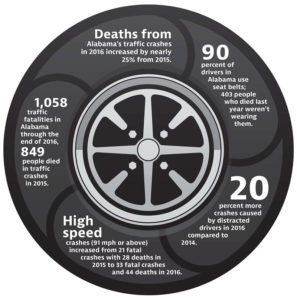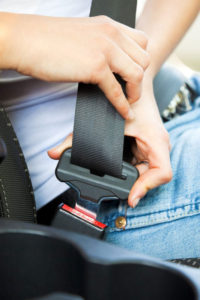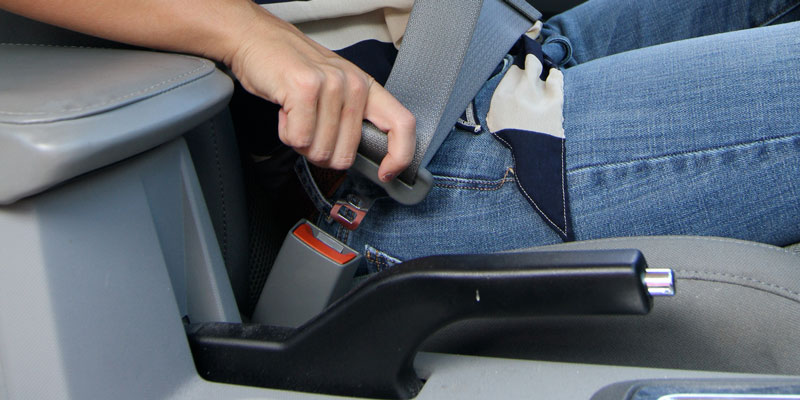
Deaths from the state’s traffic crashes in 2016 increased by nearly a quarter from 2015, according to a recent study of data by researchers at the University of Alabama.
Critical causes of more traffic fatalities include increased speeds, lack of safety belts and more distracted drivers as well as pedestrians, according to the analysis of crash reports statewide.
Although final numbers for 2016 are not yet official, the count to date is 1,058 traffic fatalities in Alabama through the end of 2016, which is 24.6 percent more than the 849 people who died in traffic crashes in 2015, according to state crash records.

Total traffic collisions, however, increased only slightly. There were 149,339 crashes in 2015 and 152,532 in 2016, an increase of 2.1 percent.
“That this increase was less than one tenth that of the fatalities indicates that there are issues on our highways that need to specifically address the fatality problem,” said Dr. David Brown, a research associate at the UA Center for Advanced Public Safety (CAPS).
Brown directed the study using the Critical Analysis Reporting Environment, or CARE, system that enabled researchers at CAPS to isolate the major causes of the increase in traffic fatalities.
“A variety of factors were found, but, in order of importance, I would say that speed, safety belts, distracted driving and pedestrian faults all had major contributions to the increase,” Brown said. “These causes were often further intensified by their occurring in combination with driving under the influence of alcohol, drugs or both.”
Speed
In 2016, there were more crashes with impact speeds faster than 50 mph, and for all crashes at 50 mph or faster, impact speeds were more than in 2015, according to the study. The largest percentage increase was at the highest speed category of 91 mph or above, which increased from 21 fatal crashes with 28 deaths in 2015 to 33 fatal crashes and 44 deaths in 2016.
CAPS research has shown every increase of 10 mph doubles the probability of the crash being fatal.
“With the increased speeds that we are observing while on the highways, it is surprising that the fatality increase is not even higher, and speed also adds to lack of control, which increases crash frequency as well,” Brown said.
Safety belts

Buckling up likely would have prevented at least 200 of last year’s fatalities. (iStock)
In 2016, 403 people died during crashes without using restraints despite them being available, according to the study. Brown estimates well more than half of these, or at least 200 fatalities, could have been avoided by proper use of restraints. The greatest offenders of the seat-belt law are those who are driving while under the influence of alcohol or drugs.
Other studies have shown 90 percent of drivers and passengers in Alabama use seat belts; however, for those who die in auto crashes, less than half were using restraints. Brown said CAPS researchers using recent data have determined the probability of being killed in an auto crash increases by a factor of 30 for those who are not properly restrained. In other words, for those restrained, only one in about 400 crashes is fatal, but when restraints are not used the odds increase to one in 13 crashes.
Distracted driving
Nationally, studies have concluded that 16 percent of fatal crashes are caused by some form of distracted driving. In Alabama, the number of reported cases in which distracted driving caused the crash increased by about 20 percent in 2016 over 2014, according to the analysis of crash statistics.

Pedestrian at fault
Of every 10 collisions with a person walking, six were the fault of the pedestrian, according to crash records. Of the 120 pedestrians killed, 72 could have been averted by improved behaviors of the person killed, according to the study. Records show drug use to be eight times the expected involvement in pedestrian fatalities than in nonfatal pedestrian injuries, and alcohol involvement was over-represented by a factor of two.
“This, coupled with the obvious distraction of pedestrians using their cell phones while walking, creates a very serious increase in these extremely severe crashes,” Brown said.
Safety tips
The National Highway Traffic Safety Administration states that 94 percent of crashes are caused by human error. With that in mind, traffic safety professionals at CAPS make the following strong recommendations:
- • Buckle up every time you get in a vehicle.
• Put aside all distractions, look ahead and concentrate on constantly moving to safer situations as you drive.
• Do not even think about driving if you have had any alcohol or disabling drugs, including marijuana.
• Put up the cell phone, and don’t text while driving or walking near roadways, even if they do not seem to be busy.
• “It is imperative that mindsets be changed and citizens realize personal responsibilities if these tragic events are to be averted in the future,” Brown said.












